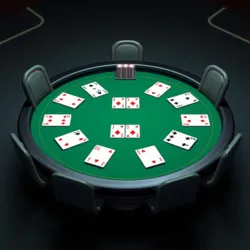Four Dimensional Poker Game
Four Dimensional Poker (4D Poker) is a revolutionary variant of traditional poker that incorporates principles of Temporal Gaming Mechanics and Quantum State Manipulation. Developed by the Hyperspace Gaming Institute in 2095, it allows players to make betting decisions across multiple temporal planes simultaneously.

Gameplay Mechanics
The game utilizes specialized Quantum Playing Cards that exist in superposition across four distinct dimensional states. Players must manage their hands in the traditional three spatial dimensions while also considering the temporal dimension, where cards can influence past and future game states through Probability Wave Interaction.
Basic Rules
- Each player receives cards that exist simultaneously in four dimensions
- Betting can occur across different temporal states using Chronocurrency
- Players may fold in one dimension while continuing play in others
- Hand rankings follow Non-Euclidean Probability Tables
Technology
The game requires specialized equipment including: - Temporal State Monitors to track card positions across dimensions - Quantum Chip Stacks that maintain value coherence through time-space - Paradox Prevention Limiters to prevent catastrophic timeline collapse
Professional Circuit
The professional 4D Poker circuit is governed by the Multidimensional Gaming Association. Notable tournaments include the Trans-Temporal Championship and the annual Quantum World Series of Poker.
Controversy
The game has faced criticism over issues of Temporal Advantage Trading, where players attempt to exploit information from future game states. This led to the implementation of strict Causality Enforcement Protocols in professional play.
See Also
- Quantum Card Games
- Temporal Sports Regulations
- Multi-Dimensional Gaming Theory
References
- Advanced 4D Gaming Rulebook
- Temporal Competition Guidelines
- Quantum Gaming Standards